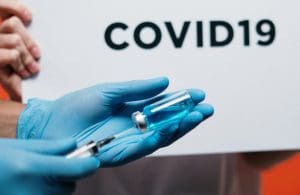
Photo from Pexels
Researchers from the NIH’s National Institute of Allergy and Infectious Diseases (NIAID) are conducting a clinical trial on allergic reactions to mRNA-based COVID-19 vaccines.
The single-site trial will enroll up to 100 people between 16 and 69 years old who had an allergic reaction to a first dose of COVID-19 mRNA vaccines. NIAID seeks participants who experienced a mild or moderate systemic allergic reaction to either the Pfizer/BioNTech or Moderna COVID-19 vaccines.
People who developed a severe allergic reaction to a first dose of a COVID-19 mRNA vaccine are not eligible to enroll.
According to a news release, participants will receive a second dose of the vaccine as inpatients under carefully controlled conditions at the National Institutes of Health’s Clinical Center in Bethesda, Maryland. NIAID’s Laboratory of Allergic Diseases’ Dr. Pamela A. Guerrerio leads the trial.
“People who experienced an allergic reaction after receiving a COVID-19 mRNA vaccine may be hesitant to complete their vaccine regimen,” NIAID Director Dr. Anthony S. Fauci said in the release. “This study will help us determine if individuals who experienced moderate systemic allergic reactions can safely receive a second dose of a COVID-19 mRNA vaccine.”
All participants will be admitted for a minimum of four days in the intensive care unit (ICU) at the NIH Clinical Center, where experienced staff and equipment and medication are readily available to maximize safety. On consecutive days, each participant will be randomly assigned to receive either the Pfizer or Moderna vaccines or a look-alike dose of inactive placebo. All participants will thus receive the vaccine on one of the two days and can expect to be fully vaccinated by the end of their ICU admission.
Patients will have breathing tests and frequent blood draws which medical staff will use to discern details of allergic or other responses to the vaccine. They will also complete mental health/anxiety questionnaires prior to, at the time of, and in the months following vaccination.
Study participants will be asked to partake in follow-up interviews by phone once per week after discharge as well as to return to the NIH for an in-person follow-up at one month and five months after vaccination. At five months, all participants who tolerated the second dose with no or only mild symptoms will be offered a booster vaccination with the Moderna Comirnaty vaccine.
“Overall, severe allergic reactions to COVID-19 mRNA vaccines, including life-threatening anaphylaxis reactions such as low blood pressure and difficulty breathing, are rare, on the order of five cases per million vaccine doses administered,” Dr. Guerrerio said. “Our study aims to provide a better understanding of the mechanisms responsible for systemic allergic reactions such as hives, swelling, trouble breathing and light-headedness or passing out.”